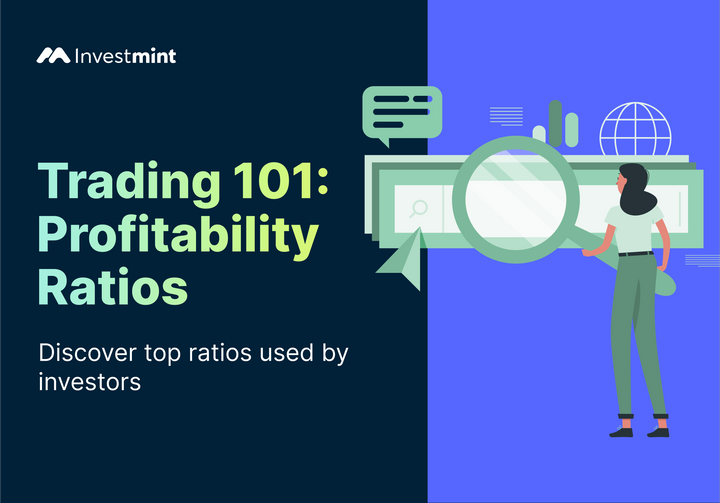A Detailed Guide To Commodity Trading In India
Discover India's rich commodity trading journey from old times to modern exchanges. Learn types, methods, regulations, and trading strategies.

Introduction
Commodity trading has been an integral part of India's economy for centuries. India has a rich history of commodity trading, which dates back to ancient times when traders used to barter goods with each other.
In the early 19th century, India was a major exporter of raw materials such as cotton, jute, tea, and spices. The British East India Company established commodity markets in major cities like Mumbai, Calcutta, and Chennai, which allowed traders to buy and sell these commodities.
Commodity trading in India has witnessed tremendous growth, with the introduction of innovative financial products such as commodity options and commodity index trading.
Today, commodity trading is an integral part of India's economy, providing a platform for farmers, traders, and other stakeholders to hedge against price fluctuations and manage their risks.
This article will provide a comprehensive understanding of commodity trading in India, various aspects such as types of commodities, commodity exchanges, trading methods, factors affecting commodity prices, regulations, tax implications, and staying updated with commodities.
Understanding Commodity Trading
Commodities are raw materials traded in large quantities that are interchangeable with similar goods, and their prices are determined by demand and supply. Natural resources like gold or oil are categorised as hard commodities, while agricultural products such as wheat or coffee are referred to as soft commodities.
Commodity trading in India refers to the buying and selling of commodities through exchanges or over-the-counter (OTC) platforms. The process involves the purchase of a commodity at a lower price and selling it at a higher price to make a profit. Commodity trading can be done through various instruments, such as futures, options, forwards, and spot contracts. Commodity trading is essential for several reasons.
- Hedging Tool
Firstly, commodity trading provides a platform for producers and consumers to hedge their risks against price fluctuations. For example, a farmer can use futures contracts to lock in a price for his produce, protecting him from a sudden price fall. Similarly, a manufacturer can use futures contracts to secure a fixed price for raw materials, protecting him from price increases.
- Price Discovery
Commodity trading helps in price discovery, which means that the market determines the fair price of a commodity based on its demand and supply. This enables producers to get a fair price for their produce and the consumers to buy at a reasonable price.
- Liquidity
Commodity trading provides market liquidity, meaning buyers and sellers can easily find counterparts to execute their trades. This increases the efficiency of the market and reduces slippage
Advantages Of Commodity Trading
Commodity trading offers portfolio diversification, high leverage, the potential for high returns due to volatility, and transparency through real-time pricing and historical data.
Commodities like Gold and Silver can act as a hedge against inflation and have a low correlation with traditional assets such as stocks and bonds. However, the high risk associated with volatility must also be considered. Overall, commodity trading can provide opportunities for investors seeking higher returns and diversification but requires a risk-tolerant mindset and a deep understanding of market dynamics.
Risks Associated With Commodity Trading
Commodity trading is highly risky due to volatile prices, requiring a high tolerance for loss. Investors have no control over the factors driving prices, and trading demands a good knowledge of technical analysis, making it complex for beginners.
- Market volatility: The fluctuation of prices in the market, which can be affected by various factors such as supply and demand, weather patterns, and geopolitical events.
- Liquidity risk: The risk of not being able to exit a position due to low trading volumes or lack of buyers or sellers.
- Counterparty risk: The risk of default by the counterparty with whom you have entered into a transaction.
- Operational risk: The risk of loss resulting from inadequate or failed internal processes, systems, and human errors.
Types Of Commodities
Commodities can be classified into two categories: hard and soft. Hard commodities, like gold and crude oil, are extracted resources with a long shelf life, while soft commodities, such as wheat and coffee, are agricultural products with a shorter shelf life. Both types are traded in physical or derivative form.
The following commodities are traded in the Indian commodity markets:
| Hard Commodities | Soft Commodities |
|---|---|
| Gold | Cotton |
| Silver | Wheat |
| Crude Oil | Soybean |
| Natural Gas | Sugar |
| Copper | Coffee |
| Lead | Tea |
| Nickel | |
| Zinc |
Commodity Exchanges In India
Commodity exchanges are electronic platforms where commodities are traded. These exchanges provide a platform for buyers and sellers to trade commodities and manage their risks. Commodity exchanges provide transparency in the trading process, with real-time price information and access to historical data.
The following are the commodity exchanges that are operating in India:
· National Commodity and Derivatives Exchange (NCDEX)
· Multi Commodity Exchange (MCX)
· Indian Commodity Exchange Limited (ICEX)
· National Multi Commodity Exchange (NMCE)
· Ace Derivatives and Commodity Exchange (ACE)
· Universal Commodity Exchange (UCX)
· Indian Energy Exchange (IEX)
Trading In Commodities
Commodity trading can be done through various instruments, such as futures, options, forwards, and spot contracts. Investors can trade commodities through exchanges or over-the-counter platforms.
Commodity futures are agreements between a buyer and a seller to buy or sell a specific quantity of a commodity at a predetermined price and date in the future. These contracts are traded on commodity exchanges, enabling investors to speculate on the future price movements of commodities.
The advantage of commodity futures is that they provide a way for producers to hedge their production and price risks while also providing a means for investors to make profits on the price movements of commodities. However, the disadvantage of commodity futures is that they are highly leveraged, which means that even small price movements can lead to large gains or losses.
Commodities Trading Explained With An Example
To trade in a commodity, you must choose an exchange that deals in that particular commodity. For instance, gold, silver and crude oil are the most traded commodities on the MCX. Let’s say you want to trade in crude oil. It is traded in lot sizes of 100 barrels. The expiry is on the 19th or 20th of every month. Assume that the price of a barrel of crude oil is Rs. 6,550 for a contract you want to enter into. Since the minimum lot size is 100, you will have to trade in at least Rs. 6,55,000 worth of crude oil. The current margin requirement for crude oil is 30%. Therefore, you will require at least Rs. 1,96,500 to go long on crude oil.
Let’s put this into an example to understand how it would work. Say you go long on crude oil for a three-month contract at Rs 6,500. You close on a contract of 100 barrels. In three months, on the settlement date, here are the three things that could happen:
Scenario 1: Price of Crude Oil Drops
Let’s say crude oil prices drop to Rs. 6,400 per barrel. Since you entered into a contract to buy 100 barrels at Rs. 6,550, you would be at a loss of Rs. 150 per barrel, or a total of Rs. Rs. 15,000.
Scenario 2: Price of Crude Oil Increases
If, on the settlement date, the price of crude oil increases to Rs. 6,750, you will be in a profitable position. You can buy crude oil at Rs. 6,550 as per your futures contract and sell it in the market at Rs 6,750 per barrel, making a total profit of Rs. 20,000.
Scenario 3: Price Remains Unchanged
If crude oil prices do not change and stay put at Rs 6,550, you would have made neither a profit nor a loss.
Factors Affecting Commodity Prices
Several factors can affect commodity prices, including supply and demand, weather patterns, geopolitical events, and economic factors. Supply and demand are the most important factors that drive commodity prices. When there is high demand and low supply, prices tend to rise; when there is low demand and high supply, prices tend to fall.
Weather patterns can also affect commodity prices, particularly in the case of agricultural commodities. For example, droughts or floods can lead to a decrease in supply, leading to higher prices. Geopolitical events can also affect commodity prices, particularly in the case of oil prices. For example, tensions between oil-producing nations can lead to disruptions in supply, which can lead to higher prices.
Regulations For Commodity Trading In India
The Securities and Exchange Board of India (SEBI) regulates commodity trading in India. SEBI has issued several rules and regulations to ensure fair and transparent trading in commodities. These rules and regulations cover margin requirements, position limits, and disclosure requirements.
SEBI has also introduced several measures to protect investors, such as requiring commodity brokers to maintain a minimum net worth and setting up a grievance redressal mechanism for investors. SEBI has also introduced several measures to promote the development of commodity derivatives markets in India, such as allowing foreign entities to participate in commodity trading and permitting commodity options trading.
Tax Implications For Commodity Trading In India
Income tax is applicable on the profits earned from commodity trading, while STT is applicable to the value of the transaction.
Additionally, investors who trade commodities frequently may be subject to the Goods and Services Tax (GST) levied on the brokerage fees charged by the commodity broker. It is essential for commodity traders to clearly understand the tax implications of their trading activity to avoid any legal issues and ensure compliance with the tax laws in India.
Conclusion
Commodities are crucial for human civilisation, and India's economy benefits significantly from commodity trading. This article provides a comprehensive guide to commodity trading in India, covering the various types of commodities, exchanges, trading methods, price factors, regulations, taxes etc. Commodity trading is important for price discovery, hedging against fluctuations, and market liquidity. While it offers diversification and transparency, it is also risky and requires technical knowledge.



